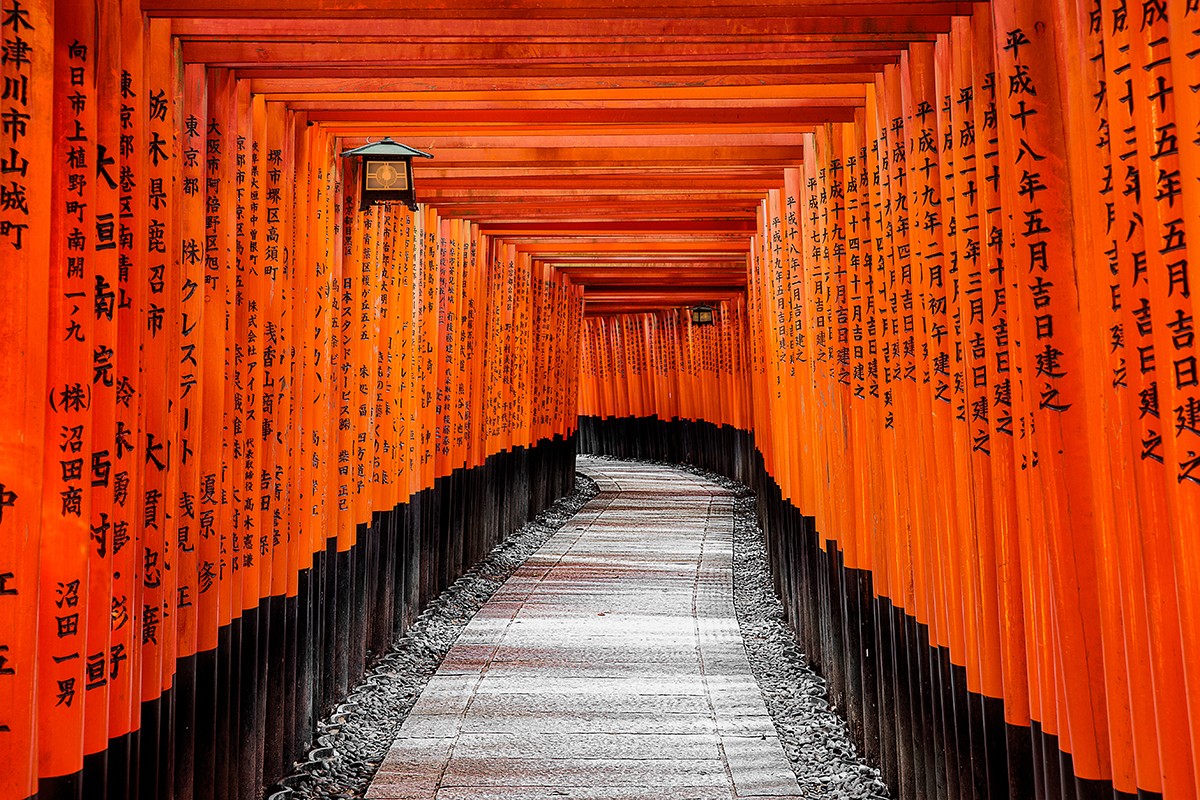Living in another country can be an exciting, overwhelming and at times intimidating prospect. While there is the thrill of adventure and new experiences, it can be difficult to adjust to entirely new set of societal and cultural norms.
Living in Japan is an amazing and life-changing experience for many, but most of us make many mistakes along the way. Hopefully, with this list, you can avoid some of these mistakes!
If you fancy ticking off some of the tourist sites while in Japan, check out this 2 weeks in Japan itinerary!
Things to know about living in Japan
Cash is still king
One of the first pieces of advice for anyone going to Japan, whether for tourism or to live, is to bring cash. Japan is still a majority cash-based society, and it is completely normal to carry a larger amount of cash than you would normally do in other countries.
In recent years, Japan has started to catch up to the credit cards and payment apps of other countries, but it is still nowhere near as widespread. Most large shops and chain restaurants will accept credit card or cashless apps, but it is common for smaller, more independent shops and restaurants to still rely on cash-only payment.
When it comes to cashless apps, there is a multitude of apps available, each with different point systems and benefits. When moving to Japan, it can take some time to set up a functioning credit card and/or a cashless app so cash will be your best friend, at least for the first few months of living in Japan.
Learn a little Japanese
A common question asked regarding living in Japan is “Can I move to Japan without knowing Japanese?” and the answer is absolutely yes. However, the more Japanese you know, the easier your journey will be. It is not necessary to be fluent upon arrival, but learning at least the first two of Japan’s three alphabets (hiragana and katakana) either before or soon after arriving will help you out greatly.
These are especially helpful when it comes to buying food as many products will have the English name or flavour spelt out in katakana, which will allow you to make more informed choices.
To speed up your learning of the language, you may want to start taking Japanese classes. It is not widely advertised, but the ward offices in many areas offer cheap or free Japanese classes.
These are often group classes and so are a great way to meet new people while practising your new language. Learning Japanese will make your time in Japan a lot smoother and ease you through many of the difficulties faced when moving between countries.

You might struggle with dietary requirements
If you have any type of dietary requirements, intolerances or allergies, it may be more challenging to navigate buying food in Japan than in other countries. Even without the language difference, veganism and vegetarianism is not yet very popular and well-understood in Japan.
Often, foods which may look plant-based use a meat-based stock or flavouring. In restaurants, you may need to ask about the ingredients rather than just “Is this vegan/vegetarian?”. This is also true of food intolerances. It is not very easy or in some cases, even impossible to alter dishes when eating out. If you ask a restaurant to remove one aspect of the meal, it will cause a lot of difficulty and confusion for the staff.
If you have food requirements, it will take a lot more work to find the restaurants that can cater to you and to check labels of supermarket products to make sure they are safe for you.
You can check HappyCow for veggie and vegan-friendly restaurants. There is a growing amount in the cities, although much fewer in the countryside and smaller towns.
Know your recycling!
This is an aspect that is easy to forget about before moving to Japan. Recycling rules is a topic which rarely comes up when only travelling in Japan, beyond putting rubbish in the clearly-labelled public bins. However, when it comes to recycling as a resident, it’s a different story.
The trash must be separated into various categories, each of which is collected on a different day. The information regarding which days and which categories is extremely region-specific, and different areas of the same city can vary significantly in the strictness of the rules.
Most ward offices have this information available on their website, and if not, you can request a pamphlet from the ward office. In some cases, a pamphlet or schedule will be included along with the documentation when you move into a new apartment.
It is a good idea to make sure you have this information before or shortly after arriving, as rubbish can accumulate fast as you buy more products for your new house or apartment.
There are ways to save money
Moving can be a costly expense, especially an international move. You will likely have to rely on savings to cover some of these costs, and when first moving to Japan, they may need to cover your first few months there.
This is a time where both saving money and making the best use of the money you have will become necessary. Also, by setting up these habits early, it will help you to save money in the long run. Japan is famous for its abundance of convenience stores, and for a good reason; They are easy to access and provide a vast range of products.
However, for most daily living expenses, convenience stores are not the best option. Many of the items you can buy in a convenience store are also readily available in your local supermarket for a lower price. It is also likely that the supermarket will have more options. Most supermarkets are open until midnight or even 24hrs, making them almost on par with convenience store opening hours.
Another excellent way to save money is to head to the 100yen shop. These shops sell a vast variety of goods with a reasonable level of quality, especially compared to dollar stores in other countries. It is very easy to buy home goods, such as cutlery and kitchenware, storage items, cleaning products and even snacks from 100yen shop. Setting up a new home with 100yen shop items is very common in Japan and is a great way to save money.

Be prepared for paperwork
One of the less enjoyable, but unavoidable aspects of life in Japan is the amount of paperwork. Everybody knows that Japan is often touted as a futuristic, high tech country. However, there are many aspects of society which still rely on technology like fax machines, as well as paper documents and the postal system.
If you are coming from a country where it has become standard to do taxes, applications and documentation online, it can seem quite cumbersome to suddenly have to write out your information multiple times in various forms, so it is helpful to be ready and prepared for the paperwork to come.
Arrange health insurance
Health insurance is part of life for every resident of Japan. Whether it is organized through your employer (shakai hoken) or through public health insurance (NHI), all residents must be enrolled in health insurance. This allows your health costs to be subsidized to 70% by the government, meaning you will only pay up to 30% of the final costs.
You may need to see a doctor at some point while living in Japan, and it is a good idea to have some understanding of the system before you get to that point. Japan doesn’t really have GPs, meaning all doctors clinics are technically specialists. If you know what type of specialist you need, it is easy to go straight to a specialized clinic.
If you need further treatment, this clinic can then refer you to a hospital with a higher level of care. However, if you aren’t sure what type of doctor you need or you have a more ‘general illness’, like a cold, the best idea is to visit a ‘naika’ clinic. Naika is ‘internal medicine’ and is the most general type of doctor you can visit. This is the clinic usually visited for colds, flus, vaccinations and other mild illnesses.
It is important to make sure you know where the nearest clinic is, as this is not something you will want to be researching while you are sick.
Be prepared for natural disasters
Natural disasters are a part of life when living in Japan. There is a lot of seismic activity, making it quite prone to earthquakes. There are many earthquakes, ranging in severity, across the country every year. Some areas have a lower frequency of earthquakes, and so it is less common, while in other areas it is more frequent, but it is quite unlikely never to experience an earthquake while living in Japan.
Typhoons are also a regular yearly occurrence, usually around late summer-early autumn. These also can range in severity from being a general tropical storm right through to causing floods.
When it comes to these natural events, it is important to find a balance between being informed and prepared and being scared and anxious. It is good to be prepared for an emergency, but keep calm when there are warnings because the highest likelihood is that you are safe.
Japan is largely safe – but you should take caution
This is a rarely spoken-about aspect of living in Japan due to the country’s strong reputation as being very safe with a low crime rate. While this is true, it doesn’t mean that crime never happens in Japan, and so it is essential to still be careful.
This is especially relevant for women living in Japan. One of the most common pieces of advice given to women living alone is to not live on the bottom floor of a building. The bottom floor will always have the easiest access from the street and so is the most vulnerable to crime.
Many women have issues with stalkers following them home, stealing items of clothing from their laundry and sometimes even going further. One way to stay safe from this is to look for a higher apartment.
When walking home, especially at night, it is also good to look out for the nearest convenience stores. Due to the multitude of convenience stores in Japan, there is almost always one less than a block away, especially within the cities. If anything is to happen to you, convenience stores are one of the best places to go as they are open 24/7, they are brightly-lit, there are always people nearby and the staff will be able to help you and if necessary, call emergency service for you.
It is very unlikely that you will be a victim of crime in Japan, but it is still important to keep these factors in mind.

Remember your etiquette!
The strict etiquette rules of Japan can be quite intimidating as a foreigner, especially as they are often unspoken. However, they are usually a lot easier than we think. One of the best ways to fit into Japanese society is to look at what everyone else is doing. The majority will be following the ‘rules’, and so by following what they do, you will also be following the rules.
An example of this is lining up for trains. When waiting for a train, everyone will queue in two lines at the markings along the platform. When the train arrives, the lines will move to the sides and anyone leaving the train walks out, then the people in the lines can enter the train.
This isn’t written anywhere, but by simply watching and following, it is easy to pick up on the cues. Many rules of etiquette and social politeness can be understood in this way.
Moving to Japan: are you ready?
Living in Japan is a wonderful experience and a great step in your life journey. Learning from another culture, participating in new customs and seeing new places is truly enriching. However, these differences can lead to some bumps along the road. Hopefully, this list will smooth some of those bumps out and make sure your experiences is truly amazing.

